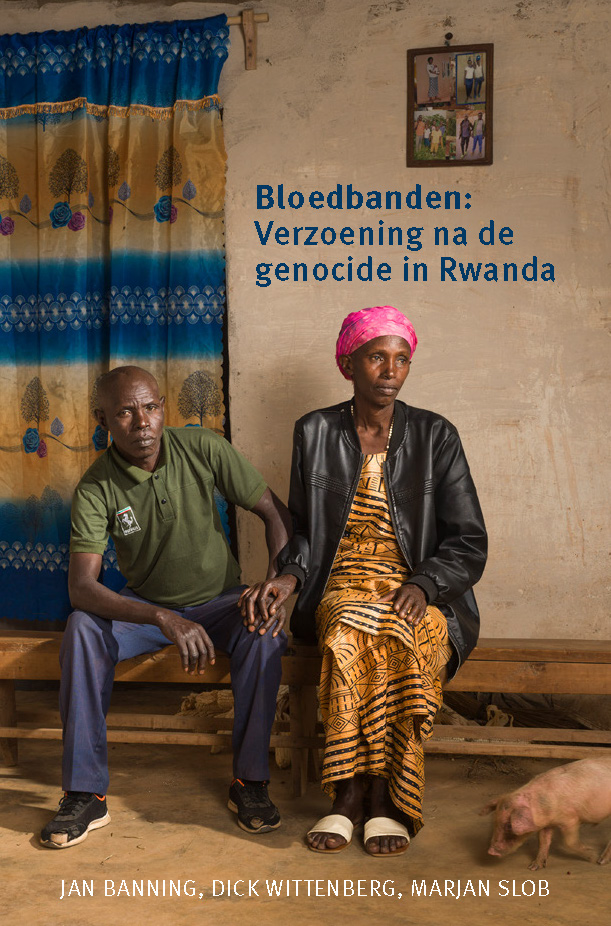genres
Bloedbanden
€35,00
Author(s): Jan Banning, Dick Wittenberg en Marjan Slob
Expected on: Fall 2025
Language: Dutch
Pages: 152
Size: 160 x 240 mm
Edition: paperback
ISBN: 9789462265509
Year: 2025
Photography: Jan Banning
Publisher: Lecturis
Design: Victor Levie
Every war, every genocide eventually comes to an end. Survivors, relatives of victims, perpetrators, and bystanders are left with no choice but to clear the rubble and try, once again, to live together. But how do you do that when mutual distrust still simmers, and fear and hatred continue to smolder?
It requires a healing process that spans years—generations, even.
In Rwanda, that process has been underway since the 1994 genocide against the Tutsis. They’ve embraced a local method known as Mvura Nkuvure: I heal you, you heal me. Perpetrators and victims—once sworn enemies—confront each other’s pain and reconcile. Time and again, it’s nothing short of miraculous.
Jan Banning and Dick Wittenberg portrayed, in words and images, improbable pairs: people who once wished each other harm but now live side by side as good neighbors, friends—even family. One by one, they say they’ve become human again.
Writer and philosopher Marjan Slob contributed an essay on forgiveness.
This book offers solace in times of war and chaos.
The English version of this book is: Blood Bonds
Additional information
| ISBN | 9789462265509 |
|---|
